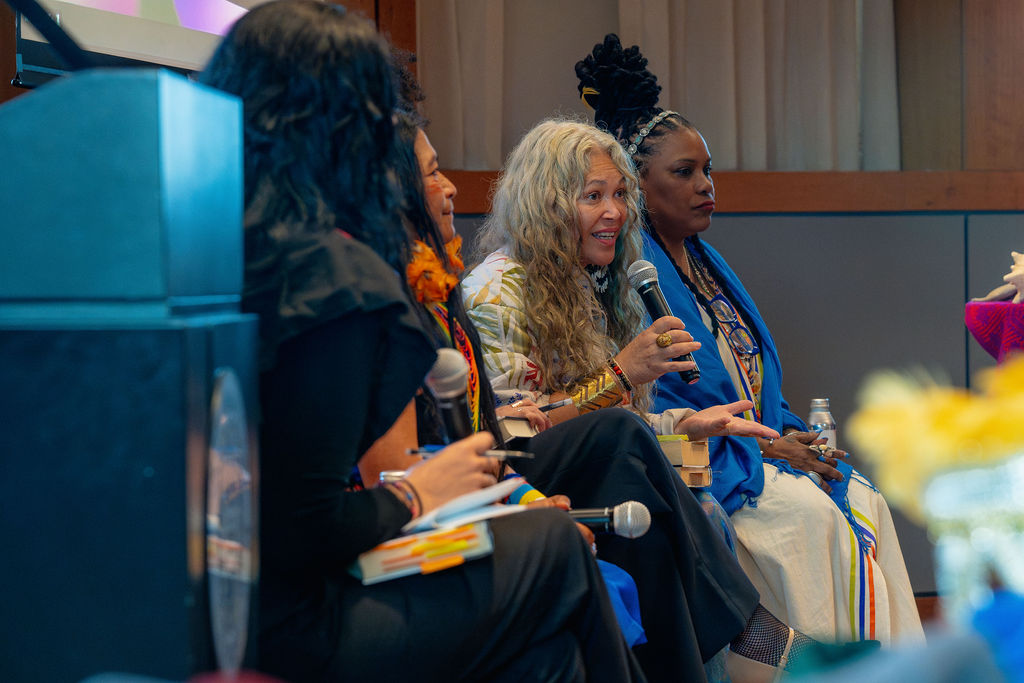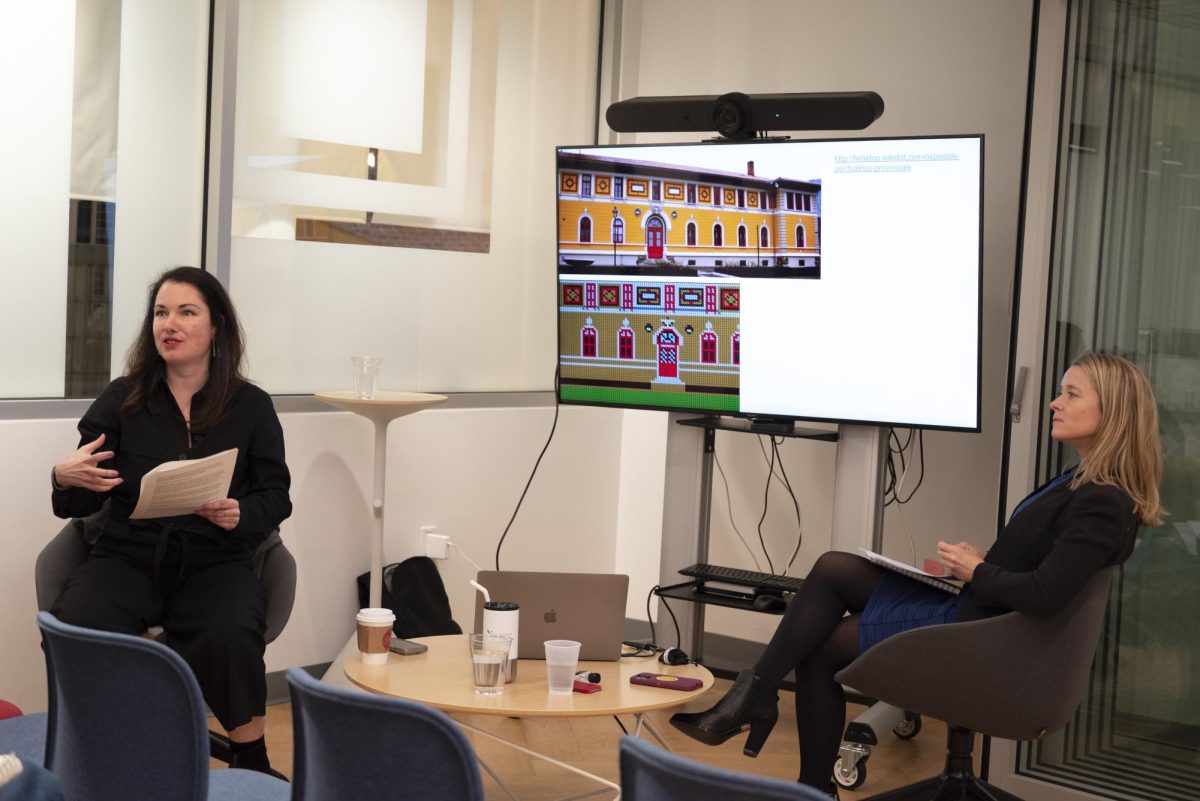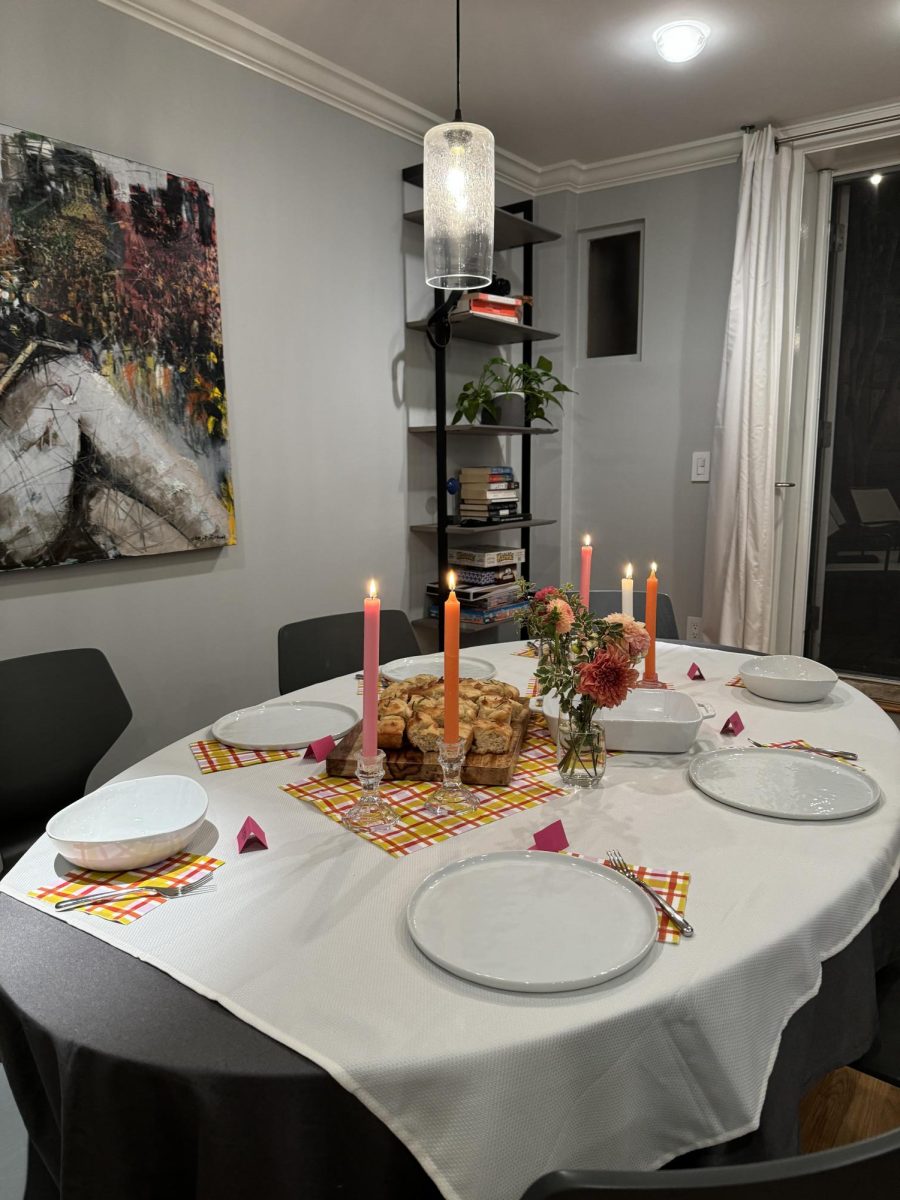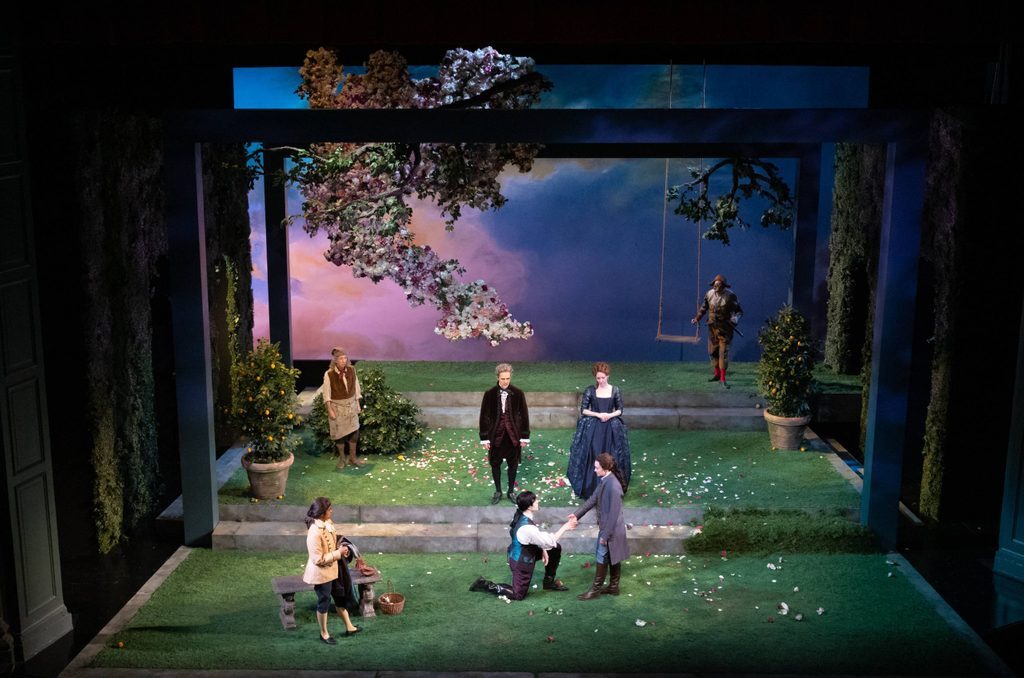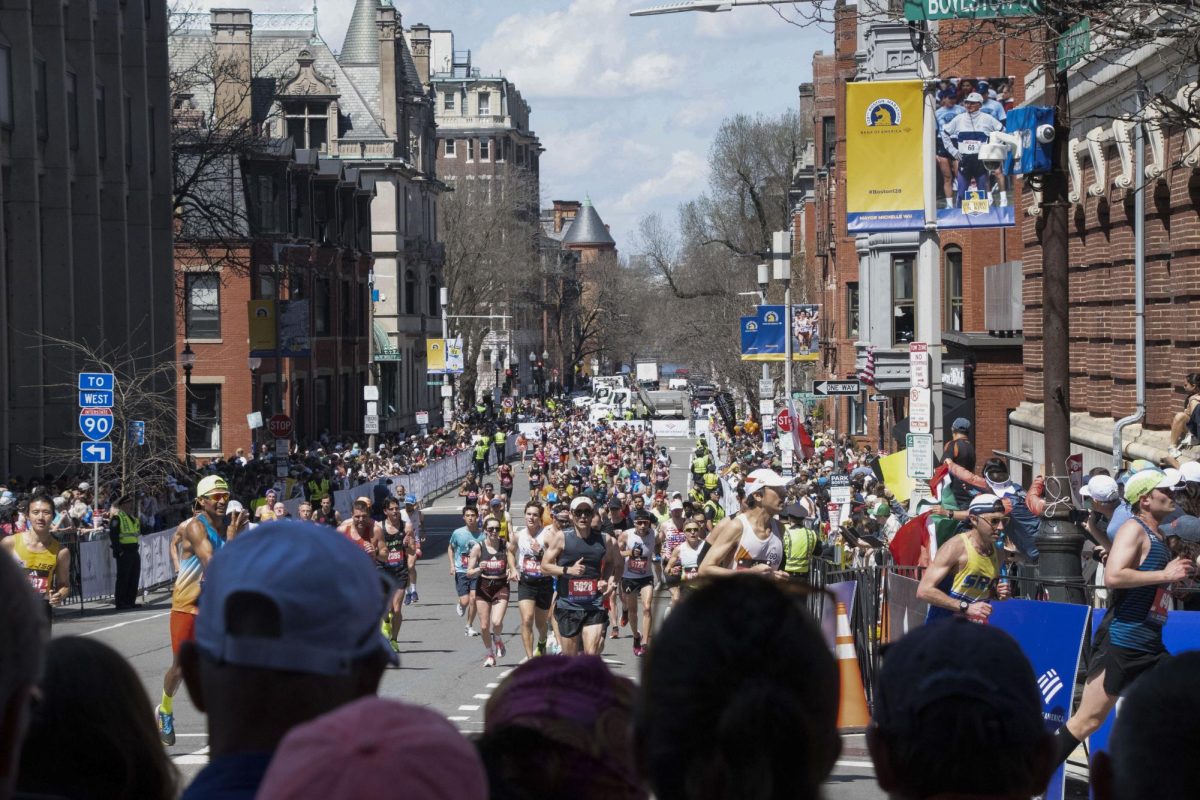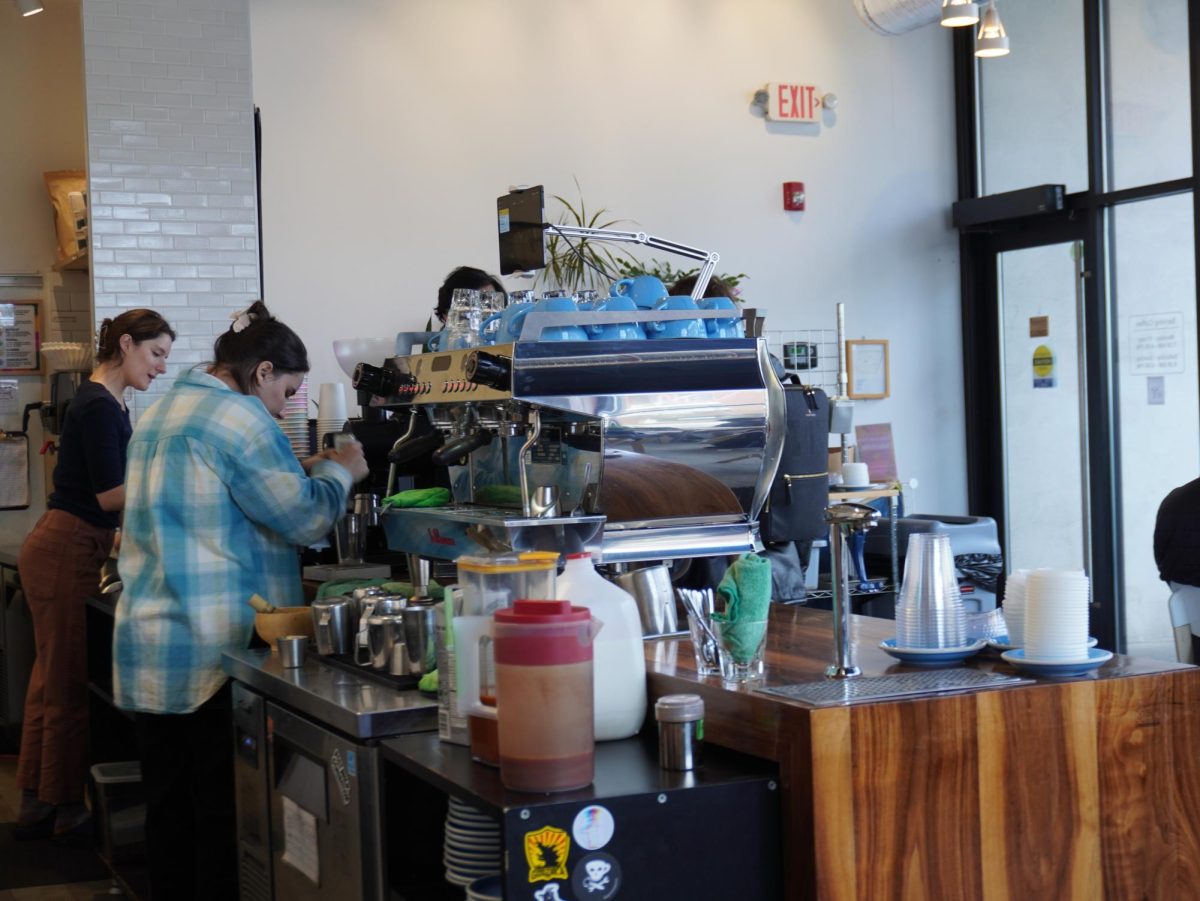The Northeastern African Student Organization, or NASO, hosted its annual Africa Night celebration Feb. 8 in Blackman Auditorium. Northeastern students of all backgrounds came together to commemorate African culture through various fashion shows, listening to classic Afrobeats artists, enjoying professional works of body art from the Tanzanian Acrobats and a spectacular performance from Stonebwoy, an Afrobeats artist.
Each year, a different Afrobeats artist performs at Africa Night; previously, NASO hosted renowned artists like Rema in 2022, Uncle Waffles in 2023 and Mayorkun in 2024. Students of all backgrounds were welcome to attend — members of adjoining African student organizations at Wentworth Institute of Technology and Harvard University attended as well.
Michaella Koker, a Sierra Leonean American fourth-year political science and international affairs combined major, is the community service representative for NASO. Koker described the charitable component of NASO, which gives back to the community.
“We donate funds back to Africa and bring more services to the community,” Koker said. “We did a donation drive for clothes, turned it into a thrift shop and gave the remaining clothes to a local hospital.”
NASO’s Africa Night featured exhilarating events which emphasized the importance of representing African culture and promoting diversity at a predominantly white institution, or PWI.
Throughout the night, NASO models and performers eagerly shared how elated they were to embrace their African culture on campus: more specifically, to share what it means to be African beyond the surface by supporting a range of local African businesses from restaurants to overseas fashion designers. In the past, NASO has hosted events offering cuisines that span from numerous countries to truly represent and showcase the vast diversity of the palates of Africa, at a “Friendsgiving” event and catered different cuisines like Nigerian jollof rice and Ethiopian injera.
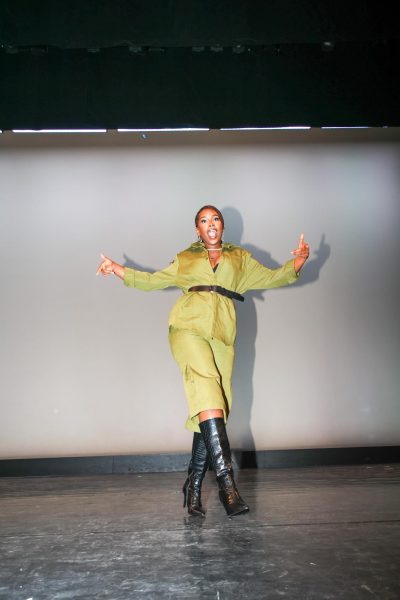
For NASO executive board members and models, Africa Night started seven hours prior to showtime at 11 a.m. From the dressing room to the stage, NASO members strived to remain driven, creative and multifaceted during the event’s high-pressure moments.
Brian Ametekpor, a Ghanaian American first-year business administration and communication studies combined major, modeled for his first Africa Night. As the first-year representative for NASO’s executive board, Ametekpor’s role is to support underclassmen NASO members and introduce what the NASO community brings to new or prospective students at Northeastern.
“I love embracing my African culture and just learning new stuff in my culture that I didn’t even know and learning other African cultures like East African,” Ametekpor said. “I am just excited to experience everything: modeling, dancing and just seeing how everything comes together and seeing things that could have gone well and gone wrong, just learning and applying that when I plan Africa Night next year and other NASO events.”
Cindy Bonsu, a Ghanaian American fourth-year business administration major, and Lydia Olukotun, a Nigerian American fourth-year business administration major, are both seasoned NASO executive board members. Bonsu and Olukotun explained the ins and outs of how NASO puts its events together from the beginning stages of planning, production, catering food, booking artists and organizing traditional African garments to being showcased on stage. Bonsu and Olukotun are the current co-presidents of NASO and have been part of NASO since their first year at Northeastern.
Bonsu first joined NASO’s executive board as a first-year representative, then continued as a cultural liaison, an event coordinator and, finally, as co-president. Bonsu explained that an intense amount of planning goes into Africa Night.
“We create a schedule; we also create committees, where, if you’re taking care of modeling, dancing, anything else, performing acts, we split that up, we find acts, we reach out to people, people reach out to us,” Bonsu said.
NASO creates a theme for each year’s Africa Night, and this year, the theme was “Àseyorí,” meaning “excellence” in Yoruba. After a theme is chosen, NASO’s executive board finds acts that accurately portray the theme. From spoken word to acrobatics, the NASO community incorporates excellence in a multitude of ways.
“Coming to a PWI, it’s important to immerse yourself in your culture as well and also introduce people’s culture to them because I know some people didn’t grow up in their African community, so it’s nice for the two to mix,” Bonsu said.
Olukotun also shared her insight and explained why she joined NASO.
“I am from a small town in New Jersey, and there were not a lot of Africans,” Olukotun said. “I was only exposed to Africans when I went to church or going to hall parties, so, for me, it was really important to have that sense of community when I [came] to Northeastern.”
Olukotun gave an insider’s perspective on the complexities of booking an artist for Africa Night. From budgeting spreadsheets to artists cancelling last minute, NASO’s executive board learned to constantly keep its doors open in the face of uncertainty.
“This year, we found that given budget cuts with Northeastern and these artists increasing their budgets, we kind of struggled a little bit this year trying to find artists that are best fit for us,” Olukotun said. “But, ultimately we did get Stonebwoy, and we are very excited to get him.”
One of Olukotun’s goals for Africa Night was to have first-time viewers be able to interact and engage with the show. Janelle Nipah, a first-year political science and communication studies combined major who was born and raised in Ghana, and Lara Adams, a first-year health science and business administration combined major who was born and raised in Trinidad, thoroughly enjoyed NASO’s performances and were eager to attend Africa Night.
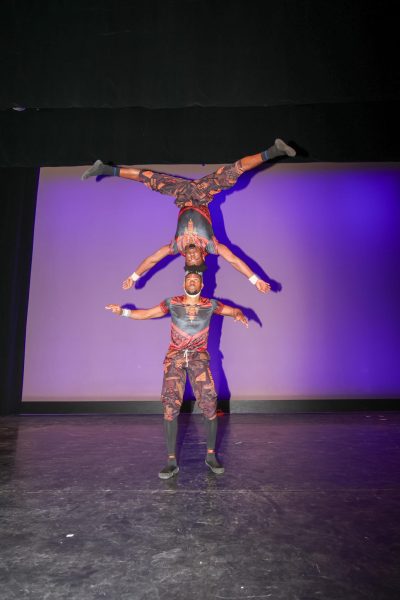
Nipah convinced Adams to go after she saw NASO’s dancing at the Battle of the ASO’s last semester — an annual event that gives African student organizations at various Boston universities a chance to compete against one another in Blackman Auditorium.
“It makes me feel closer to home,” Adams said. “[It’s] inspiring and motivating. I get to see a different culture.”
At first, Ametekpor joined NASO solely to be centered around an African community on campus; however, he emphasized that its importance goes beyond the surface.
“The reason I’m continuing is because of the DEI thing, the Black student enrollment drop — the affirmative action,” Ametekpor said. “With our class, I think we have 100 something [Black/African students], and it’s very noticeable because I know almost every freshman. It’s very concerning.”
Ametekpor is a Fall 2024 Torch Scholar and a recipient of a full-ride scholarship that includes academic planning, mentoring, personalized meetings to promote self-advocacy and exclusive social events. The scholarship gives first-generation college students who overcame extreme barriers the ability to expand their horizons at Northeastern.
Keeping his concerns about the community in mind, Ametekpor summarized what NASO means for him and for every individual of African descent on campus.
“Just because Black people are leaving and they accepted less doesn’t mean the African spirit should go down,” Ametekpor said. “The Torch system should go on, and I’m prepared to make it shine bright.”



